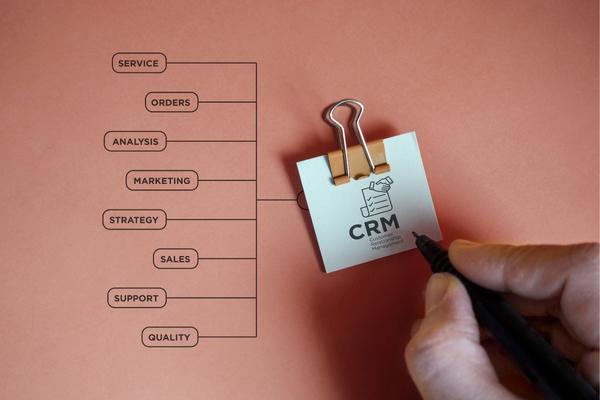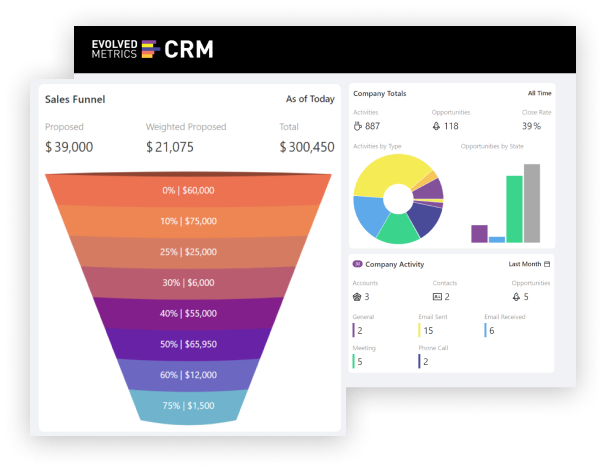CRM For Wholesalers
A CRM system can be a valuable tool for companies, whether they are in the deconstruction industry or in the more corporate world. Those in sales, especially, can benefit from a CRM– including wholesalers!
This is because CRMs primarily function to improve and maintain customer relationships, which are of course crucial to continuing partnerships and getting new clients, too. CRMs can also help teams to stay organized and productive when it comes to their day-to-day tasks.
Read on to learn more about CRM software and how it can be beneficial to your wholesaling business.

Also Read
Small Business CRM – Benefits and Implementation Strategies
Sales Team CRM Integration
CRM for Construction
What Is a CRM?
Of course, if you are to implement a CRM for your business, you will first need to understand what exactly it is. CRM is an acronym for customer relationship management software. As the name suggests, the main function of this system is to manage customers by assisting a company in keeping their customers satisfied.
There are a number of ways that this could be done, and several different features of the software that help with this. Some of the key features that can be found in just about any CRM are analytics, reporting, date entry and collection, and automation.
Benefits of CRM For Wholesalers
If you are a wholesaler and still on the fence about whether or not you will invest in a CRM, you should take a look below. We have rounded up some of the benefits that a CRM can bring to the table when it comes to not only wholesale businesses, but businesses in many other sectors as well.
Read on to learn more.
Streamline Sales Automation
When it comes to wholesaling, sales are a key part of the company’s success. Without strong and steady sales, the company will not be able to turn a profit. A CRM can assist sales teams by streamlining the sales cycle in a number of ways. For instance, you can use automation to get contracts and price quotes off to your clients quicker. You can also use a CRM with sales management and lead management to help you guide potential leads through your sales funnel so that your potential customers turn into new, paying customers.
Automation
Workflow automation can help in the sales process, as mentioned above, but it can also help business processes by directly every day by increasing the productivity of your sales team. You will be able to hand off many of your mindless tasks to the CRM system, rather than doing them manually. Then, this frees up time for you to focus on more important tasks which require human attention or a personal touch. It also means that you and your team members will be able to get more done during the workday, since some tasks are being handled by the CRM software.
Data Entry and Collection
Another once of the important things that CRM systems do is collect and enter important customer data– often, this data is about clients, regarding their preferences, your past conversations, and more which is very helpful for your sales pipeline management. This can prove to be very valuable when you are selling to that customer, or if you need to go back and reference previous conversations and information.
You are able to access your customer data much quicker when it is stored in the CRM, rather than in a filing cabinet in your office. As CRMs are cloud based, it also makes this data accessible from anywhere, even if you are working from home or otherwise not in the office.

Analytics and Reporting
Analytics and reporting can be an asset to many businesses. In fact, they are crucial, especially if you want your business to grow. Both are an easy way to determine what is working and what is not, internally. You can also use analytics to evaluate what sorts of sales and marketing approaches yield the best results when you are trying to get new clients or make sales with existing clients. You can then use these findings to further inform your marketing strategy. That way, you are not wasting additional resources trying to discern what is working by running two different test campaigns, for instance.
Managing Marketing Campaigns with Marketing Automation
A CRM system can be highly beneficial for managing marketing campaigns in the wholesale distribution industry. Here’s how a CRM can help:
- Customer Segmentation: A CRM allows you to segment your customer database based on various criteria such as industry, location, purchase history, or engagement level. This segmentation helps you target specific customer groups with tailored marketing campaigns. For example, you can send targeted promotions to customers who have shown interest in specific product categories or create personalized offers for high-value clients.
- Email Marketing: Many CRM systems offer built-in email marketing capabilities or integrations with popular email marketing platforms. You can design and send targeted email campaigns to your wholesale customers. This includes newsletters, product updates, promotional offers, and event invitations. With a CRM, you can track email opens, click-through rates, and conversions, allowing you to measure campaign effectiveness and refine your marketing strategies.
- Lead Generation and Management: A CRM system can help capture and manage leads for your wholesale business. You can track leads, assign follow-up tasks to sales representatives, and monitor lead conversion rates. By integrating lead generation forms on your website or other channels, you can automatically capture lead information directly into the CRM for nurturing and conversion.
- Sales Funnel Visibility: With a CRM, you can track leads and opportunities as they progress through the sales funnel. You can see which marketing campaigns contribute to lead generation and monitor their progression to closed deals. This visibility helps you identify bottlenecks, optimize your marketing efforts, and focus on strategies that generate the most significant returns.
- Customer Engagement and Relationship Building: A CRM system helps you maintain consistent communication and build strong relationships with your wholesale customers. You can record customer interactions, track conversations, and schedule follow-up tasks to ensure timely engagement. By having a complete view of customer interactions, you can provide personalized experiences, address customer needs, and nurture long-term loyalty.
- Analytics and Reporting: CRM software offers analytics and reporting features to measure the success of your marketing campaigns. You can generate reports on campaign performance, conversion rates, customer engagement, and revenue generated. These insights help you evaluate the effectiveness of your marketing efforts, identify areas for improvement, and make data-driven decisions to optimize your wholesale marketing strategies.
In summary, a CRM system provides valuable tools for customer segmentation, email marketing, lead management, sales funnel visibility, customer engagement, and campaign analytics. Leveraging these features, you can enhance your marketing campaigns in a wholesale business, improve customer relationships, drive sales, and achieve better overall marketing outcomes.

A CRM system can greatly benefit a wholesale company by streamlining and improving various aspects of its operations. It provides a centralized platform to manage customer information, track sales leads, and nurture customer relationships. With a CRM, a wholesale company can segment its customer database, personalize marketing campaigns, and effectively manage sales pipelines. It enables efficient order processing, inventory management, and customer service. By gaining insights from analytics and reporting, a CRM helps the wholesale company make data-driven decisions, optimize sales strategies, enhance customer satisfaction, and drive business growth. Overall, a CRM system empowers a wholesale company to improve efficiency, increase sales, and deliver exceptional customer experiences.
Evolved Metrics
The CRM tools that you choose will depend on what you are looking for in a CRM software. One great CRM for wholesale companies and distribution businesses, though, is Evolved Metrics! This particular CRM is one that is designed for small to mid size businesses, and is meant to be both easy to learn and easy to install. It is also equipped with all of the tools you will need in your wholesale business or distribution business, and can integrate with the systems that you are already using and can’t– or don’t want to– get rid of.
If you are still debating whether Evolved Metrics is the right system for you, you can contact them for a free crm demo so that you can learn more about the system and see it work in real time as well!
Click HERE for your free trial
Everything you need to do in 3-clicks or less
Whether you are ready to transition your sales accounts and processes from spreadsheets, or you’ve tried other CRMs that weren’t a good fit, we offer a simple, intuitive interface, meaningful metrics, and the ability for each of your users to customize their workspace to fit their priorities.
Evolved Metrics CRM is designed to help you spend more time growing your relationships and winning more opportunities.

Frequently Asked Questions
What is wholesale CRM?
A wholesale CRM is a software solutions system that can help a wholesaler or wholesale distribution company to streamline their day to day. The system helps by integrating with other systems that a wholesaler may use to create a central spot for all sales, marketing, and customer communication. CRM stands for customer relationship management, so it functions primarily to maintain customer relationships and keep the sales for a company strong so that they can continue to succeed.
Which is the best CRM for sales?
If you are in sales and you are trying to find a CRM solution to implement with your existing programs, there are plenty of options out there. Part of it is going to depend on your individual needs and your expectations of a CRM, as well as the size of your company.
A great CRM for sales is Evolved Metrics. This particular CRM software was designed to be user friendly, so even the least tech savvy employees should not have a problem learning to use it. Plus, it is quick and easy to set up, and can even be personalized depending upon what you need from a CRM.


